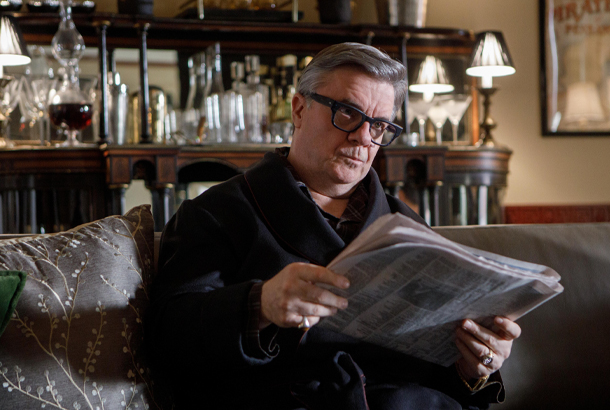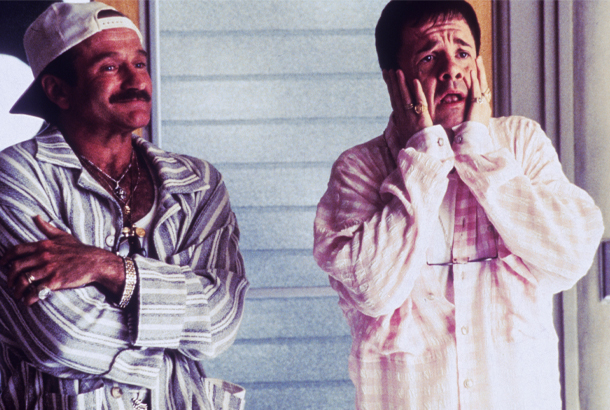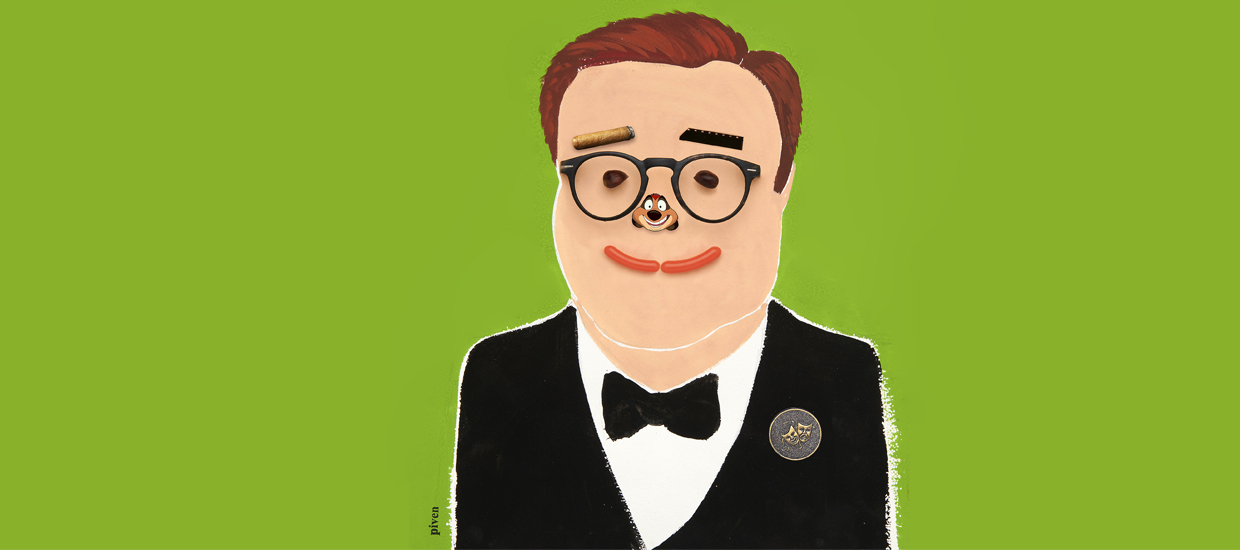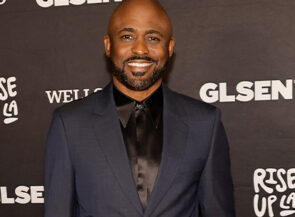If you don’t know and love Nathan Lane from one thing, it’s the other. The stage and screen pro has a list of iconic credits that range from Tony-winning roles in Broadway hits (The Producers and Angels in America) to memorable turns in films (The Birdcage and The Lion King, in which his inimitable voice brought the meerkat Timon to unforgettable life). With an old-school showbiz wink and a delicious sense of comic timing, he’s also left his mark on television, where he recently popped up on HBO’s The Gilded Age and picked up an Emmy for his turn in the Hulu comedy Only Murders in the Building.

This month, Lane returns to Broadway in Sharr White’s new play, Pictures From Home, based on photographer Larry Sultan’s acclaimed 1992 photo book homage to his parents, who retired to a deeply kitschy house outside of Palm Springs in the early 1980s. Opposite stage legends Danny Burstein and Zoë Wanamaker, Lane plays Sultan’s cantankerous father, Irv, in his first theater work since the pandemic shut down Broadway in 2020. On a video call from his New York City apartment, the 66-year-old actor tells Hemispheres about getting into the play’s mid-century character, the benefits of sharing the small screen with Broadway veterans, and his role in Midsommar director Ari Aster’s ultra-hushed next project.
How did you approach your role in Pictures From Home?
I was not familiar with the original book, so I read that and thought the pictures were extraordinary. Sharr White said there were original recordings that Larry Sultan did with his parents, where he interviewed them, and I was curious to hear what Irv really sounded like. So I listened to some of them, and they were really boring. He’s like a guy you would be trapped sitting next to on a plane who wants to chat. But Sharr White has done a really incredible job adapting and turning this into a piece of theater. It’s not a straightforward play that’s just set in their house; it’s sort of a memory play. Even though it’s naturalistic, we speak directly to the audience throughout the whole play and reference the photos. The set is based on a photo of the parents leaving their house, so the entire room is empty, but it becomes the space in which we do the play, with certain pieces that come in and out suggesting other areas. It’s a play that’s about parents and morality; I think it’s something everyone can relate to.
Is it something of an elegy?
Larry Sultan says in the book that, with photography, you’re trying to stop time. He wants his parents to live forever. There were all these very highfalutin themes that he had. It was the Reagan era when he started this project, and the notion of family values was being politicized. He was trying to examine the myths of family and the image of success that a family has—his father, in particular—and what is going on behind all of those images. Many things could be at play in the same picture. He’s also trying to figure his father out, and how that has affected him, and the kind of father he’s going to be. A lot of it started with him trying to understand his father, who was an angry guy. He was fired at an early age because he didn’t want to go where the company needed him to move, and he never got over that. Once he moved to California, he never wanted to leave. Then the mother became a wildly successful real estate agent and kept them very, very well off, financially, so it’s an interesting family dynamic.
How does this translate into a play?
The play is about Larry’s process. It’s hard to believe that he put them through this for close to 10 years, when he would visit with them twice a month for, like, four days at a time, taking photos and interviewing them. The father is like, “What are you doing? What are you after here? It’s like we’re being investigated.” It’s more than just photographs and asking about their early life and marriage and what it was like to be a traveling salesman; it becomes invasive. The book eventually became his magnum opus, acclaimed in terms of photography and because he was also a very good writer.
Larry’s passed now, but he was only 10 years older than you. Does his experience with his parents remind you of your own?
His are nothing like my parents. But, from the pictures, you certainly get a sense of how these people lived, what they were like, and what their tastes were. Their house and its decor was a statement about their version of success and living well. By today’s standards, you would look at the avocado walls and shag carpeting and think it’s slightly scary—but kitschy. There’s an element of Willy Loman to [Irv Sultan]: He was discarded by the corporate world, and he never got over it, so he’s very bitter and tries to fill the days. He acts like he’s still the boss, and people have to deal with that. His wife has to deal with that, and, meanwhile, she’s making $80 million a year in real estate. Larry’s putting them under a microscope. You know, the father says at one point, “You’re here in our home more than you should be, so you’re seeing a lot of the mess. You can’t judge us for that.” So it’s also an examination of marriage, and how we survive.
You’ve starred in a couple of series recently with actors who switch between stage and screen. Do you find a difference performing with those same people on camera versus on the stage?
When you’re in the theater, it’s eight times a week with the same people, so you spend a lot of time together and really become a family. In The Gilded Age, the core players spend a lot of time together, but, for me, I’m sort of in and out. There’ll be long periods where I’m gone, so it’s hard to keep the momentum going. But I’ve known all of these people [for a long time]—Christine Baranski and I go way back—so it’s very easy. There’s a genuine camaraderie, and it feels like a great repertory company. But we don’t really socialize, and that happens in the theater, too. When you’re young, you want to go out every night after the show. As you get older, you’re just trying to conserve your energy, and, if you’re doing eight shows a week, the last people you want to see are the people you’re spending that amount of time with.
Have you sensed that audiences are showing a renewed appreciation for stage actors following the pandemic shutdown?
I don’t know. I mean, Christine has been on television now for 20 years; Audra [McDonald] as well. They obviously have also had long reputations in the theater. I think because there were so many theater people in The Gilded Age, there were a lot of articles in the press talking about it—that you’re seeing all of these great theater actors, and that it brings something special—but that’s always been the case. The New York acting community is always at an advantage, because many of them do come from the theater. Theater people tend to show up on time, know their lines, and be professional and no-nonsense. They’re there to do the job and to do it well; you can count on them. The same is true of Only Murders in the Building. There are a lot of theater people: Jayne Houdyshell, Jackie Hoffman, it goes on and on. When COVID happened, theater people [needed] to be able to work, and these shows offer that opportunity.

You have a film coming up that I’m curious about: Disappointment Boulevard, which has been kept under wraps for a while. It’s a horror comedy, so it’s already something I’ll love, but I’m curious what director Ari Aster’s sense of humor is like.
I have to be careful, because I don’t know what I’m allowed to say, but I can tell you that Disappointment Boulevard is no longer the title. Although, I have to say I love that title—it makes me laugh. And if you know what the film is about, it’s even funnier. Ari showed me a trailer, which was pretty extraordinary and unlike anything I’ve ever seen. It’s more in the direction of Everything Everywhere All At Once; it’s a wild ride and very ambitious, let’s put it that way. Joaquin [Phoenix] is at the center of it, and it’s a film about a mother’s love, and a mother testing her son’s love. It’s about guilt. It’s about a lot of things. And, yes, it’s sort of Kafkaesque; Ari calls it a nightmarish comedy.
Tell me more.
It’s kind of split into sections. The first is this Kafkaesque, nightmarish setup. In the second, Amy Ryan and I play husband and wife, and there’s been an accident. We’re nursing [Phoenix’s character] back to health, and it suddenly becomes a dark, dark comedy set in suburbia; there’s a slightly sinister thing going on underneath, where you’re not quite sure if you trust anybody. And then there’s a very fanciful section that takes place, in which he escapes and is wandering through a forest and stumbles upon a theatrical group putting on a play—that’s a whole thing. He’s trying to get home for his mother’s funeral, and the last section of the film is him getting home and finding many surprises. It’s a journey.
Had you seen his previous films, Hereditary or Midsommar, before shooting this one?
Sure. He’s a real artist, and he has a great sense of humor. He makes these twisted films, but he couldn’t be nicer or sweeter, or more compassionate. He’s just a great deal of fun, and so smart; I had the best time working with him. It’s a really unusual piece, and hard to describe, because there’s really nothing to compare it to. He sort of invented his own genre with this one.
Since you were last onstage, we’ve lost two titans of theater who were collaborators of yours: Playwright Terrence McNally and composer-lyricist Stephen Sondheim. What has gone from the American theater with them?
What’s gone is them as people—people you loved that you’ll miss every day. But they were giants, so their work lives on and will keep being performed and rediscovered and reinvented. It’s more of a personal loss, in particular Terrence, who was a mentor, close friend, and someone who was a very early champion of mine. I can’t say I was close friends with Steve—though we collaborated many times and had a great working relationship—but I was certainly very fond of him. It was a privilege to work with both of them. I will just miss dinners. I don’t know a lot of the younger playwrights coming up today, but that’s what it’s all about: nurturing new talent, doing new plays. That’s what’s great about doing [Pictures From Home]—it’s a new play.




